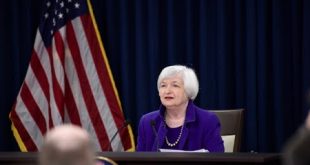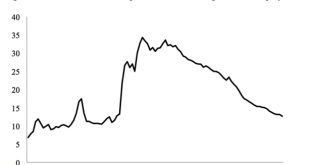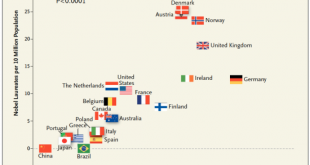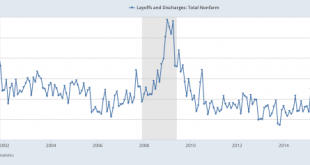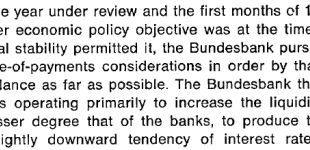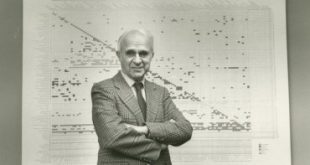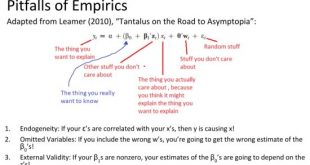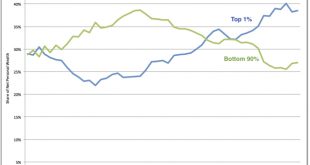The Federal Reserve's interest rate hike will slow jobs growth, but is probably being done to please Wall Street, says CEPR's Dean Baker Visit http://therealnews.com for more stories and help support our work by donating at http://therealnews.com/donate.
Read More »Brexit, don’t forget how we got here
from Jamie Morgan Understanding Brexit requires us to consider the political economy of tax justice and the abuse of wealth protection. At a time when a general election has dominated the press for the last two months and Brexit has been a shadow of anxiety – a most remarkable event that the political parties have been steadfastly refusing to remark upon in any meaningful way – it is important to recall just how we got to the current state of affairs; a state that Craig Berry refers to as...
Read More »What do unions do?
from David Ruccio When I ask my students that question, they don’t really have an answer. That’s because, like much of the rest of the U.S. population, they don’t have much experience with unions, either directly or indirectly—not when the union membership rate has fallen to below 11 percent nationwide and is only 6.4 percent in the private sector. And if you pose that question to neoclassical economists, the response is: labor unions cause unemployment, by setting a wage rate that...
Read More »Do you want to get a Nobel prize? Eat chocolate and move to Chicago!
from Lars Syll Source As we’ve noticed, again and again, correlation is not the same as causation … If you want to get the prize in economics — and want to be on the sure side — yours truly would suggest you complement your intake of chocolate with a move to Chicago. Out of the 78 laureates that have been awarded “The Sveriges Riksbank Prize in Economic Sciences in Memory of Alfred Nobel,” 28 have been affiliated to The University of Chicago — that is 36%. The world is really a small...
Read More »Bread and roses
from David Ruccio Mainstream economists and politicians have answers for everything. Lose your job? Well, that’s just globalization and technology at work. Not much that can be done about that. And if you still want a job? Then just move to where the jobs are—and make sure your children go to college in order to prepare themselves for the jobs that will be available in the future. The fact is, they’re not particularly good answers. And people know it. That’s why working-class voters are...
Read More »Links. High powered money in Greece, ECB transparancy reveales raw power, 50 years ago the Bundesbank combatted trade surpluses
High powered money in Greece. The EU is re-financing 8,5 billion of Greek debt. About 7 billion of this is just trading in one kind of government bonds for another kind of government bonds. Much ado about less than nothing. There is some welcome softening of the terms – but not enough. However: About 1,6 billion has to be used to pay overdue bills which have to be paid by the government. This exchanging private debt for government bonds and will lead to an injection of highly powered...
Read More »The Republican thieves who stole health care
from Dean Baker In their desperation to provide $600 billion in tax cuts to their rich campaign contributors, the Republicans have decided to abandon all the standard rules by which Congress has governed itself. The actions might seem extraordinary, but we know how desperately the richest people in the country need tax cuts, so who can complain if the normal procedures are not being followed? Unfortunately the debate over the “repeal and replacement” of Obamacare is being confused with a...
Read More »Leontief on the dismal state of economics
from Lars Syll Much of current academic teaching and research has been criticized for its lack of relevance, that is, of immediate practical impact … I submit that the consistently indifferent performance in practical applications is in fact a symptom of a fundamental imbalance in the present state of our discipline. The weak and all too slowly growing empirical foundation clearly cannot support the proliferating superstructure of pure, or should I say, speculative economic theory …...
Read More »Ed Leamer and the pitfalls of econometrics
from Lars Syll Ed Leamer’s Tantalus on the Road to Asymptopia is one of my favourite critiques of econometrics, and for the benefit of those who are not versed in the econometric jargong, this handy summary gives the gist of it in plain English: Most work in econometrics and regression analysis is — still — made on the assumption that the researcher has a theoretical model that is ‘true.’ Based on this belief of having a correct specification for an econometric model or running a...
Read More »American myth
from David Ruccio One of the most pernicious myths in the United States is that higher education successfully levels the playing field across students with different backgrounds and therefore reduces wealth inequality. The reality is quite different—for the population as a whole and, especially, for racial and ethnic minorities. As is clear from the chart above, the share of wealth owned by the top 1 percent has risen dramatically since the mid-1970s, rising from 22.9 percent in 1976 to...
Read More » Real-World Economics Review
Real-World Economics Review

